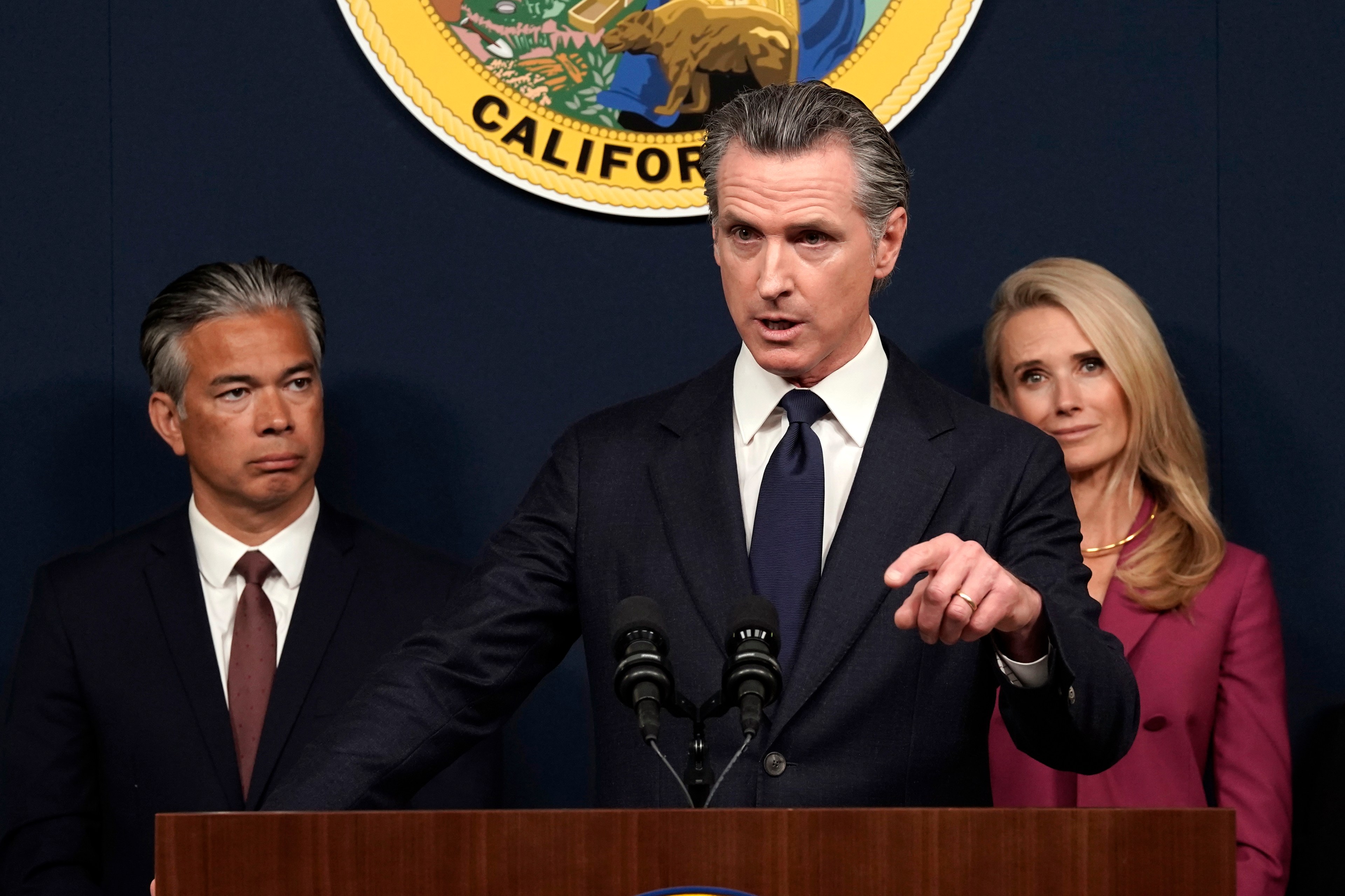The biggest challenge facing California lawmakers and Gov. Gavin Newsom is the state budget deficit—and it just got bigger.
On Tuesday, the Legislative Analyst’s Office projected the shortfall as $15 billion higher, or $73 billion.
The analyst’s office had pegged the 2024-25 deficit at $58 billion in January, using Newsom’s revenue estimates when he presented his initial budget proposal.
On Friday, Newsom’s Department of Finance reported that preliminary General Fund cash receipts in January were $5 billion below (or nearly 20%) the governor’s budget forecast. Unless state tax revenues pick up significantly, the bigger number will make it more difficult to balance the state budget just by dipping into reserves and targeted spending cuts.
But exactly how the state can dig its way out—at least in the Assembly—remains to be seen. Speaker Robert Rivas told reporters Tuesday that the budget has been at the forefront of conversations among Assembly Democrats and that he is very concerned with the growing deficit.
He praised the governor’s commitment to preserving classroom funding, and said he didn’t see a way to avoid dipping into the state’s reserves, as the governor’s January budget plan proposed—though the speaker urged a prudent approach to using rainy day savings in case the budget picture worsens in future years.
“We are very concerned about short-term fixes for long-term problems,” said Rivas, who took over as speaker last summer, just days after the Legislature and Newsom reached a deal on the 2023-24 budget that covered a $30 billion deficit after two years of record surpluses.
“Clearly, we need to prioritize oversight and curb spending and our investments,” Rivas added.
In the coming weeks, Rivas’ plan calls for an oversight budget subcommittee he formed in December to review the state’s spending on housing, he said.
But, as legislative leaders and the governor have noted, the budget deficit won’t be addressed just through oversight and cuts. It’ll also mean tougher paths for bills lawmakers introduce this year—including the return of the single-payer health care effort by Democratic Assemblymember Ash Kalra.
“It’s a good idea, but it’s a tough, tough sell, especially in the budget climate that we are experiencing now,” he said.
And while the governor has shot down any attempt to raise taxes or create new ones to increase state revenues, Rivas did not take a position.
“We look at all of the strategies when it comes to ensuring that we have a balanced budget—there are many of those tools that are available,” he said. “Which ones are appropriate, I’m not going to comment on that yet. That’s what we’re trying to figure out now.”
But Rivas may have to make some decisions soon: A spokesperson for Newsom’s Department of Finance issued a statement later Tuesday calling on the Legislature to take early action on $8 billion in savings to address the looming deficit. Newsom will propose an updated budget in May before negotiations with legislative leaders and a final spending blueprint in June.
Tuesday’s updated deficit projection also prompted concern and criticism of Democrats from the Republican caucus. Sen. Roger Niello, vice-chairperson of the Senate budget committee, echoed the sentiment on oversight. “It’s time for a course correction and a renewed commitment to responsible budgeting that puts the needs of our residents first,” he said.
